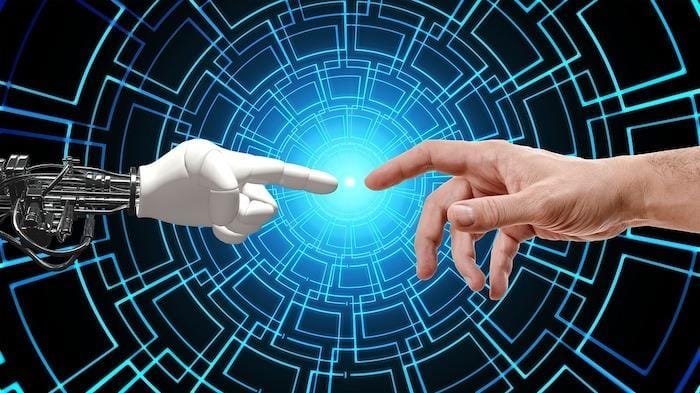Table of Contents
From ancient myths of mechanical beings to today’s intelligent machines, the journey of artificial intelligence (AI) is a captivating tapestry of innovation and imagination. As we stand at the precipice of a new era, the evolution of AI reveals not only remarkable technological advancements but also the profound implications for society and human interaction. This evolution has been shaped by a complex interplay of scientific discovery, ethical considerations, and cultural shifts, making it a fascinating subject worthy of exploration.
In examining the path that has led us to current AI capabilities, we uncover stories of pioneering thinkers and transformative breakthroughs. These milestones not only highlight the relentless human pursuit of knowledge but also reflect the intricate relationship between humanity and the machines we create. As AI continues to advance, understanding its evolution becomes crucial for navigating the challenges and opportunities that lie ahead.
The Genesis of Artificial Intelligence and Its Promising Future
The journey of artificial intelligence began in the mid-20th century, rooted in the desire to create machines that could mimic human cognitive functions. Visionaries like Alan Turing and John McCarthy laid the groundwork by introducing concepts such as the Turing Test and the Dartmouth Conference, which ignited collective innovation. These seminal moments paved the way for future advancements, sparking a wave of optimism that still resonates today.
As technology progresses, AI has evolved remarkably, embracing complex algorithms and vast datasets to enhance its capabilities. Key developments have emerged in diverse fields, including:
- Natural Language Processing
- Machine Learning
- Computer Vision
This transformation fosters not only groundbreaking applications but also ethical discussions regarding the future of work, society, and technology itself. The horizon is bright, with limitless possibilities awaiting further exploration.

Navigating Ethical Boundaries in AI Development
As AI technologies evolve, developers face profound ethical dilemmas that impact society at large. Transparency, accountability, and bias mitigation are crucial areas demanding attention. Striking a balance between innovation and responsibility requires proactive discussions and decision-making processes that involve diverse stakeholders. This collaborative approach fosters an environment conducive to ethical AI practices.
Critical considerations include the implications of automation on employment and privacy breaches caused by data misuse. To navigate these complexities, teams can employ frameworks such as:
- Ethical AI Guidelines
- Stakeholder Engagement Models
- Impact Assessment Tools
By adopting these strategies, developers can empower their projects to prioritize ethical principles, creating AI solutions that are not only advanced but also respectful of societal values.

Revolutionizing Industries: AIs Impact on Economy and Employment
Artificial Intelligence is swiftly reshaping the economic landscape, introducing efficiencies that were once beyond reach. By automating mundane tasks, AI enables businesses to allocate human resources to more complex roles, fostering innovation and creativity. Industries such as manufacturing, healthcare, and finance are experiencing transformative shifts that enhance productivity and improve customer experiences, leading to a more dynamic economy.
However, the advent of AI also raises concerns regarding employment. While some jobs become obsolete, new opportunities arise in tech-savvy sectors. Adaptation and reskilling become crucial, ensuring workers can thrive in this evolving environment. Employers and policymakers must collaborate to create pathways that support a balanced transition into the future workforce.
| Industry | AI Impact |
|---|---|
| Manufacturing | Increased automation and efficiency |
| Healthcare | Enhanced diagnostics and patient care |
| Finance | Improved data analysis and risk management |

Empowering Innovation: Strategies for Embracing AI in Daily Life
Incorporating AI into everyday routines can significantly enhance productivity and creativity. By leveraging tools such as virtual assistants, smart home devices, and personalized learning platforms, individuals can streamline tasks, manage schedules, and amplify their knowledge acquisition. The integration of these technologies not only saves time but also fosters a more organized lifestyle.
To effectively embrace AI, consider these strategies:
- Explore AI Tools: Investigate various applications tailored to specific needs, from health tracking to project management.
- Stay Informed: Keep abreast of the latest advancements and trends in AI to leverage its full potential.
- Engage with Communities: Join forums or local meetups to share experiences and insights on AI applications.
Wrapping Up
As we stand at the threshold of an unprecedented era, the evolution of AI continues to captivate and challenge us. Unlocking Tomorrow reveals not only the advancements in technology but also the profound implications on our daily lives. Here are some key points to consider:
- Transformative Impact: AI is reshaping industries, from healthcare to entertainment, enhancing efficiency and creativity.
- Ethical Considerations: As we innovate, ethical dilemmas surrounding privacy, bias, and accountability must guide our path.
In navigating the future, it’s essential that we embrace both the opportunities and responsibilities presented by AI. Understanding this technology can empower us to shape a world that aligns with our values while harnessing the potential of tomorrow’s advancements.
The journey of AI is not just about machines and algorithms; it is about the human experience. Let us commit to fostering an environment where innovation and ethical standards flourish side by side. The story of AI is still unfolding, and we all have a role in writing its next chapters.



